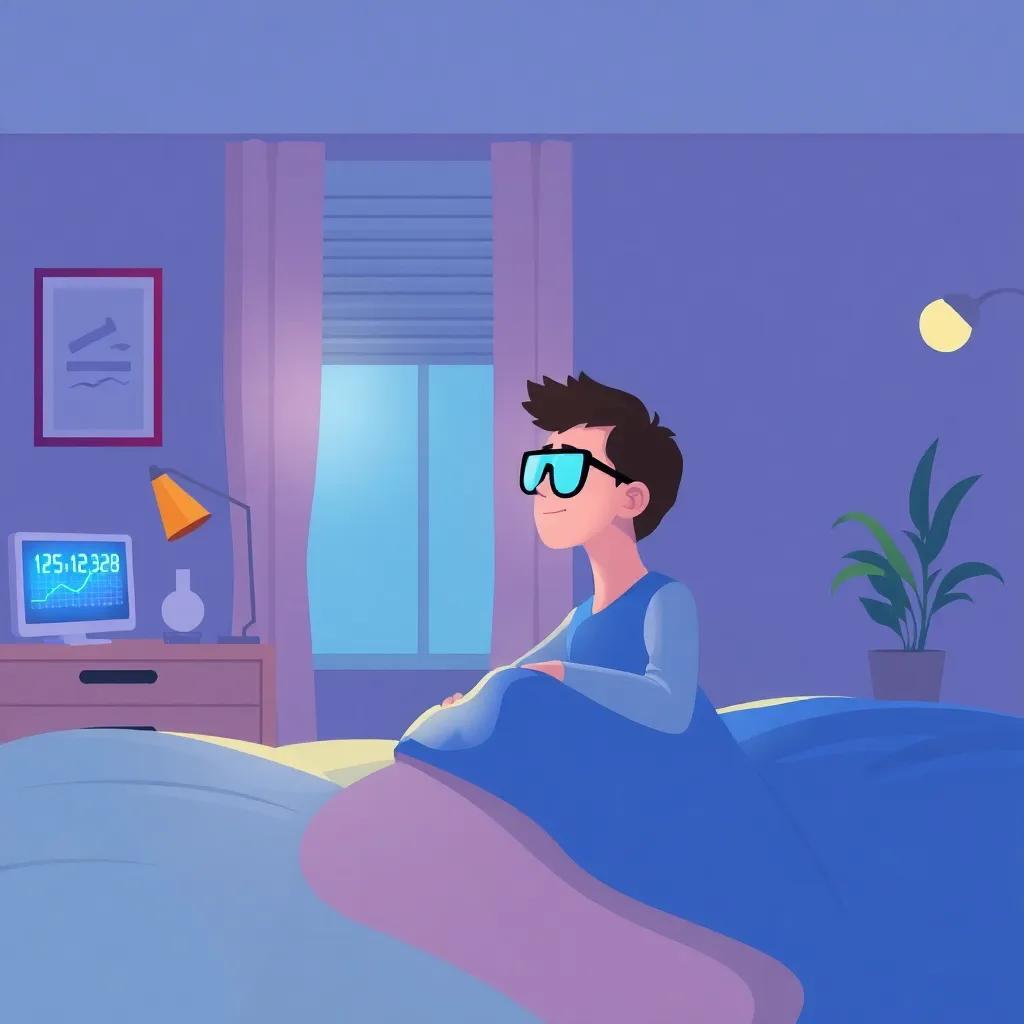Explore how blue light affects eye health and sleep, and discover practical tips to reduce exposure and improve well-being.
Blue light from screens disrupts sleep and harms eyes. Learn how blocking it can improve your health and sleep quality.
The Science Behind Blue Light
Blue light is a high-energy visible (HEV) light with wavelengths between 380 and 500 nanometers. It is emitted by the sun, but also by digital screens, LED lighting, and fluorescent bulbs. While natural blue light during the day can boost attention and mood, excessive exposure, especially at night, can have detrimental effects.
According to the American Academy of Ophthalmology
, prolonged exposure to blue light can lead to digital eye strain, characterized by dry eyes, blurred vision, and headaches. Dr. Raj Maturi, a spokesperson for the organization, states, Blue light scatters more easily than other visible light, which can cause glare and reduce visual contrast, leading to eye strain.
Blue Light and Sleep Disruption
Blue light plays a significant role in regulating our circadian rhythm, the body’s internal clock that dictates sleep-wake cycles. Exposure to blue light in the evening suppresses the production of melatonin, the hormone responsible for inducing sleep. A study published in the Journal of Clinical Endocrinology & Metabolism
found that exposure to room light before bedtime shortened melatonin duration by about 90 minutes.
Dr. Charles A. Czeisler of Harvard Medical School explains, Light is the most powerful synchronizer of our circadian rhythm. Even small amounts of blue light at night can delay sleep and reduce sleep quality.
Benefits of Blue Light Blocking Solutions
Blue light blocking glasses and screen filters have gained popularity as effective tools to mitigate the harmful effects of blue light. These solutions work by filtering out a significant portion of blue light emitted by screens, reducing eye strain and improving sleep quality.
A 2017 study in the Ophthalmic & Physiological Optics
journal found that participants who wore blue light blocking glasses experienced less eye strain and improved sleep patterns. Dr. Lisa Ostrin, the lead researcher, noted, Blocking blue light in the evening can help maintain natural melatonin levels, promoting better sleep.
Practical Tips for Reducing Blue Light Exposure
Here are some actionable steps to minimize blue light exposure:
- Use blue light blocking glasses, especially in the evening.
- Install screen filters or enable night mode on digital devices.
- Limit screen time at least one hour before bedtime.
- Opt for warm, dim lighting in the evening to create a sleep-friendly environment.
Conclusion
In a world dominated by screens, protecting your eyes and sleep from blue light is crucial. By understanding its effects and adopting practical solutions, you can safeguard your health and improve your quality of life.




